Managing an industrial boiler project requires seamless coordination across multiple disciplines—engineering design, procurement, construction, installation, and commissioning. For many clients, handling these phases separately leads to cost overruns, delays, communication failures, and system inefficiencies. That’s why a growing number of industrial operators now prefer turnkey or EPC (Engineering, Procurement, and Construction) services to streamline execution and ensure single-source accountability.
Yes, we provide complete turnkey solutions and full-scope EPC services for industrial boiler projects. Our services cover the entire project lifecycle—from initial engineering, equipment manufacturing, and procurement to site construction, piping, automation, electrical works, commissioning, and operator training. We ensure that each system is custom-designed, standards-compliant, performance-guaranteed, and delivered on time and within budget.
Choosing a turnkey EPC partner means entrusting your boiler project to a single experienced provider—eliminating coordination risks and ensuring all phases are optimized to work together smoothly and efficiently.
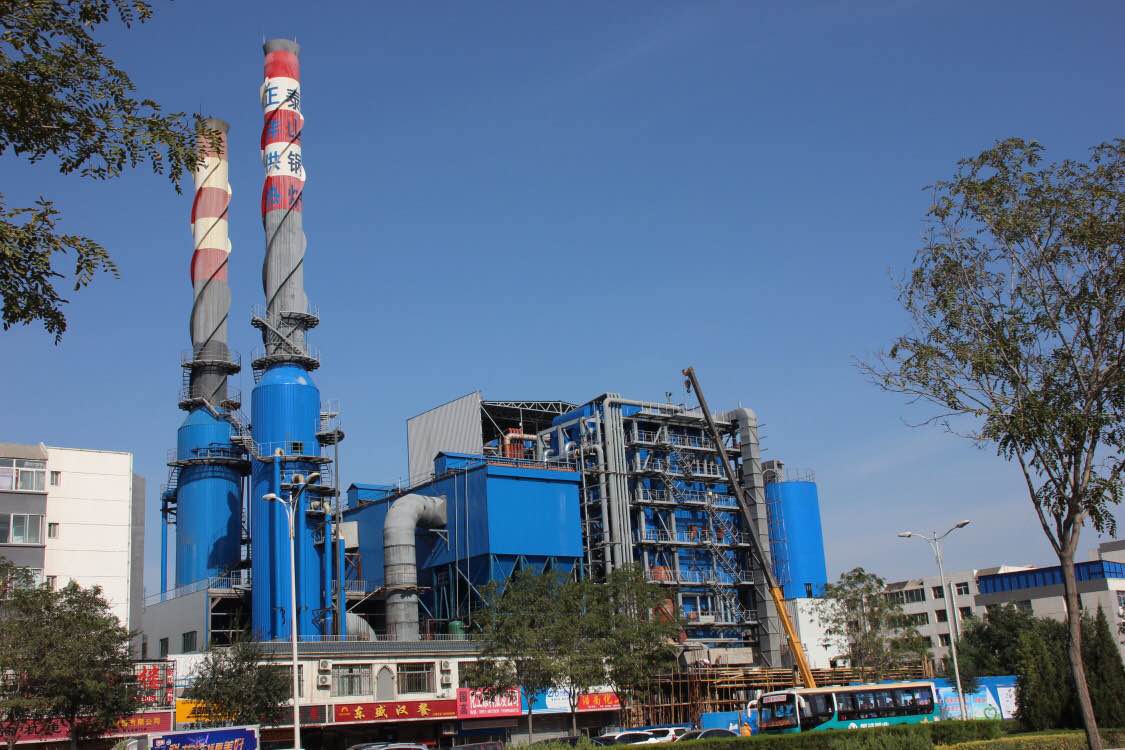
What Does a Turnkey or EPC Service Include in an Industrial Boiler Project?
When you invest in a large-scale industrial boiler project, coordinating design, delivery, installation, and system integration can be overwhelming. That’s why many buyers choose a turnkey or EPC (Engineering, Procurement, and Construction) service. With this approach, the entire project is managed under one contract, handled by a qualified supplier or EPC contractor. This means you get a fully installed and commissioned boiler system with fewer risks, tighter deadlines, and better quality assurance.
A turnkey or EPC service in an industrial boiler project includes engineering design, equipment procurement, civil and mechanical construction, piping and electrical work, control system integration, commissioning, operator training, documentation, and after-sales support—all delivered as a single package under one responsible contractor.
This full-scope solution ensures the boiler is not just delivered, but fully functional and ready for production.
EPC services for boilers cover design, delivery, installation, and commissioning under one contract.True
EPC or turnkey delivery streamlines coordination and guarantees system performance with a single point of responsibility.
What’s Included in a Turnkey or EPC Boiler Project?
| Project Phase | Deliverables |
|---|---|
| 1. Engineering | Thermal sizing, fuel analysis, layout design, foundation drawings, P&ID |
| 2. Procurement | Boiler unit, burners, pumps, valves, controls, instruments, and auxiliaries |
| 3. Civil Work | Foundation construction, boiler house erection, concrete pads, access platforms |
| 4. Mechanical Work | Boiler placement, piping (steam, feedwater, fuel), valves, tanks, stack erection |
| 5. Electrical Work | Power distribution, control wiring, motor control centers (MCCs) |
| 6. Automation & Controls | PLC/SCADA integration, loop checks, alarm configuration, control panel testing |
| 7. Commissioning | Start-up, testing, combustion tuning, safety checks, pressure testing |
| 8. Training & Handover | Operator training, SOPs, manuals, as-built documentation, warranty registration |
| 9. After-Sales Support | Maintenance plan, spare parts package, remote diagnostics |
Optional Services Often Bundled into Turnkey Projects
| Optional Scope | Details |
|---|---|
| Fuel handling system | Biomass conveyors, gas skids, oil tanks and pumping units |
| Water treatment system | Softeners, RO units, dosing systems |
| Stack emissions systems | SCR, ESP, bag filters, monitoring equipment for compliance |
| Insulation and painting | Thermal protection for pipes and boiler shell, corrosion-resistant coatings |
| Containerization | Modular boiler housed in container for fast site installation |
Key Benefits of Turnkey/EPC Delivery
Single point of responsibility — one contract covers the full system
Improved coordination and timeline control — no delays between vendors
Lower project risk — fewer handovers and fewer scope conflicts
Integrated system performance — piping, control, and boiler aligned
Simplified warranty — one contact for parts, installation, and service
Typical Timeline for a Turnkey Boiler Project (Example: 10T/h system)
| Phase | Duration |
|---|---|
| Design & Approval | 2–3 weeks |
| Equipment Procurement | 4–6 weeks |
| Civil Foundation | 2–4 weeks (parallel) |
| Mechanical & Electrical Work | 3–5 weeks |
| Commissioning & Training | 1–2 weeks |
| Total Duration | 10–14 weeks (avg.) |
Final Word
A turnkey or EPC service isn’t just about convenience—it’s about guaranteed performance, predictable delivery, and total accountability. For any large boiler project, it offers the best balance between control and simplicity.
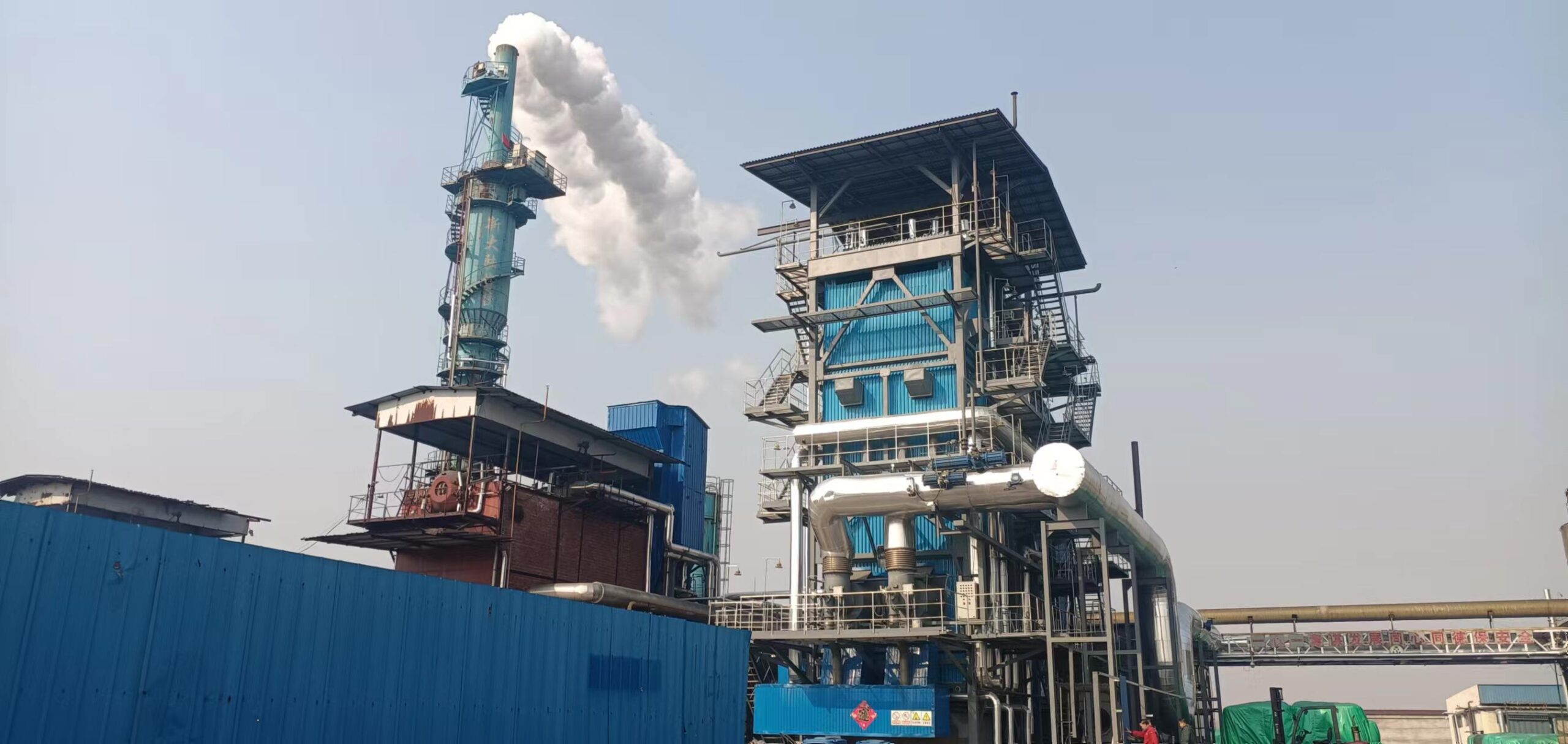
What Are the Benefits of Choosing a Full-Scope Boiler EPC Contractor?
When planning a large-scale industrial boiler project, managing multiple vendors—engineers, equipment suppliers, installers, and commissioning teams—can be time-consuming, costly, and risky. One mistake or miscommunication may delay the entire plant startup. That’s why many buyers now prefer to work with a full-scope EPC contractor, who delivers the entire project under one contract. From engineering to commissioning, an EPC (Engineering, Procurement, Construction) provider becomes your single, accountable partner.
Choosing a full-scope boiler EPC contractor brings benefits such as streamlined communication, single-point accountability, faster project delivery, integrated system performance, lower coordination risk, and reduced total cost through bundled services and optimized scheduling.
This approach simplifies the project lifecycle and ensures high-performance, fully compliant boiler systems delivered on time.
EPC boiler contractors offer complete project delivery with fewer delays and higher system integration.True
Full-scope EPC contractors manage engineering, procurement, installation, and commissioning under one contract, improving efficiency and accountability.
Key Benefits of Hiring a Full-Scope Boiler EPC Contractor
| Benefit | What It Means for You |
|---|---|
| Single Point of Responsibility | One partner handles design, equipment, construction, and commissioning |
| Faster Project Timelines | Overlapping phases (design–procurement–construction) reduce total build time |
| Reduced Coordination Risk | No need to manage multiple subcontractors or resolve scope gaps |
| Integrated System Design | Boiler, piping, control systems, and auxiliaries are engineered to work as one |
| Cost Predictability | EPC pricing includes most or all costs, minimizing surprises or overruns |
| Better Quality Assurance | Uniform standards from engineering through installation and testing |
| Regulatory Compliance Built-In | EPCs ensure ASME, CE, PED, or local code compliance from start to finish |
| Improved Safety Management | One team manages safety across all project phases and disciplines |
| Simplified Warranty & Support | One party is responsible for performance guarantees and post-sale service |
Comparison: EPC Contractor vs. Multi-Vendor Approach
| Aspect | EPC Contractor | Multiple Vendors |
|---|---|---|
| Coordination | Centralized by EPC team | Buyer must manage all parties |
| Timeline control | Optimized and concurrent | Often fragmented and delayed |
| Cost transparency | One quote, fewer change orders | Many invoices, variable labor and scope |
| Accountability | One-stop warranty and service | Responsibility can be disputed |
| System integration | Unified design and automation | May require rework or adjustments |
| Risk | Shared by EPC | Borne mostly by buyer |
Real Project Scenario
Industry: Chemical manufacturing
Project: 15-ton/h natural gas boiler with DCS and steam distribution
Approach: Full EPC vs. multi-vendor
Result: EPC project completed 4 weeks faster, saved 12% in costs, and had zero commissioning delays
When to Choose a Full-Scope EPC Contractor
You’re operating under a tight project deadline or startup schedule
You require compliance with strict codes (ASME, PED, etc.)
You lack internal staff to coordinate multi-vendor integration
You need full warranty coverage and technical support from a single vendor
You want a proven, tested system delivered ready-to-run
Final Word
A full-scope EPC contractor brings control, speed, and certainty to your industrial boiler project. It’s not just about simplifying logistics—it’s about delivering performance, compliance, and peace of mind under one reliable partner.
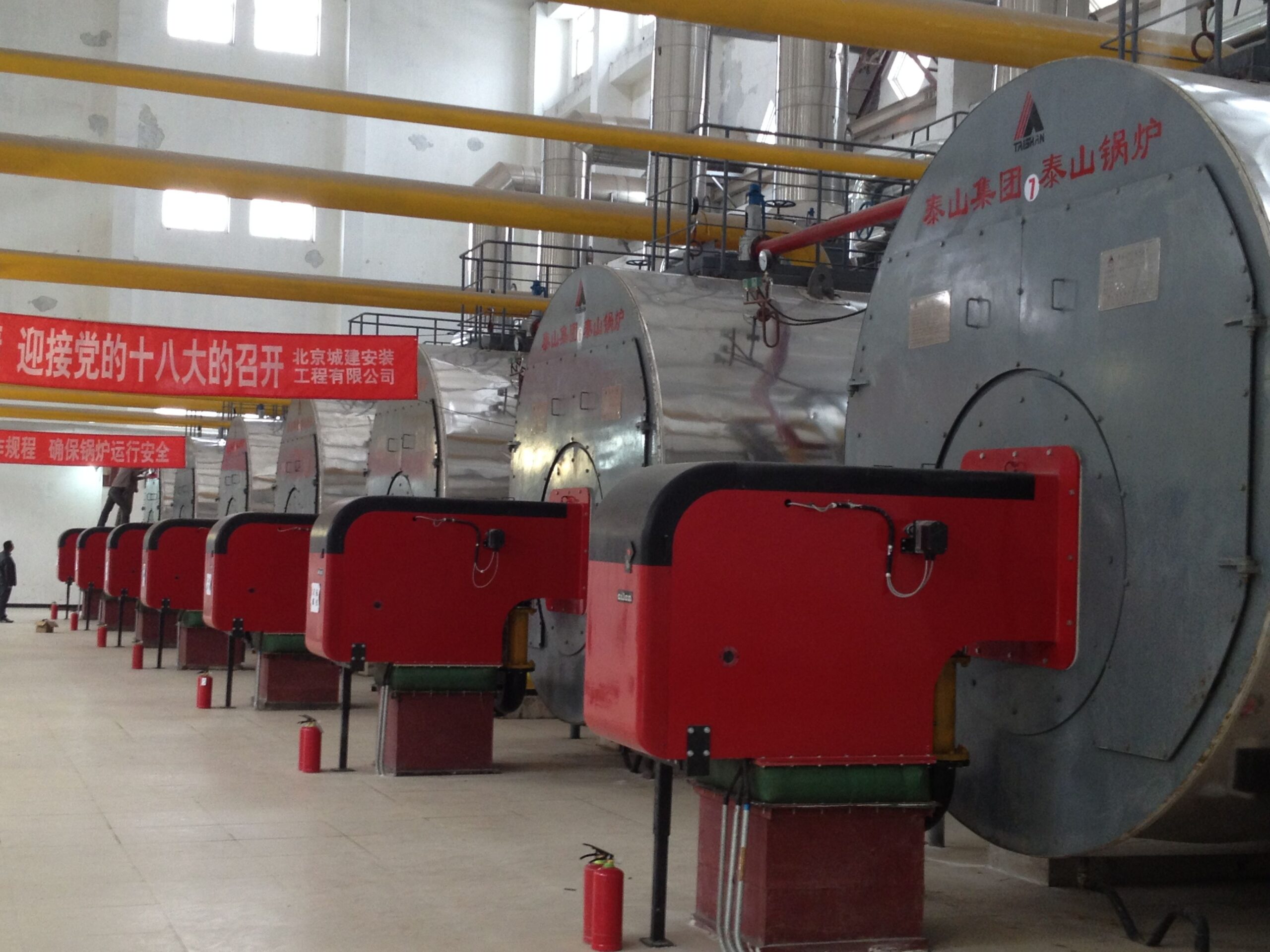
How Are Project Timelines, Responsibilities, and Costs Managed Under a Turnkey Model?
When dealing with complex industrial boiler installations, coordinating engineering, procurement, and construction across different suppliers can lead to delays, miscommunication, and budget overruns. A turnkey model, however, consolidates all responsibilities under a single provider. This means you get a fully delivered, commissioned, and operational boiler system without the headache of managing multiple contracts, conflicting deadlines, or shifting responsibilities.
Under a turnkey model, project timelines are tightly scheduled by the EPC contractor, responsibilities are clearly assigned to one accountable party, and total costs are controlled through fixed-scope pricing and bundled services. This integrated approach simplifies project execution and ensures faster, on-budget delivery.
The turnkey contractor handles everything—from design to delivery—while you focus on operations, not coordination.
Turnkey boiler projects provide fixed timelines, defined responsibilities, and clear cost control through a single contract.True
All tasks are managed by one provider who ensures project milestones, scope clarity, and pricing integrity.
How Timelines Are Managed in Turnkey Projects
| Phase | Typical Activities | Who Manages It |
|---|---|---|
| Engineering & Planning | Site analysis, design, drawings, approval coordination | EPC contractor’s engineering team |
| Procurement | Ordering of boiler, auxiliaries, valves, controls | EPC procurement team |
| Construction Prep | Civil foundation, permits, power readiness | EPC field team or local partner |
| Installation | Boiler placement, piping, wiring, system integration | EPC mechanical/electrical team |
| Commissioning | Start-up, tuning, safety tests, documentation | EPC commissioning team |
| Training & Handover | On-site training, SOP delivery, warranty activation | EPC support team |
Turnkey providers use Gantt charts, project management software, and regular milestone reporting to keep everything aligned. Delays are minimized because all phases are interconnected and managed internally.
Project Responsibility Matrix (Simplified)
| Responsibility Area | Turnkey Contractor’s Role | Buyer’s Role |
|---|---|---|
| Design & Engineering | Full responsibility | Input preferences and site info |
| Equipment Supply | Selection, purchase, delivery | Approve specs and budget |
| Construction & Installation | Manage all civil, mechanical, and electrical works | Provide site access |
| Commissioning | Lead start-up, ensure full system operation | Attend handover, receive training |
| Compliance & Permits | Assist or manage as per contract | Support with local regulatory access |
| Cost Control | Maintain fixed pricing unless scope changes | Approve change orders (if any) |
Cost Management Under Turnkey Model
| Cost Element | How It’s Controlled in Turnkey Model |
|---|---|
| Design & Engineering | Included in upfront price—scope and deliverables defined early |
| Equipment Procurement | Bundled pricing—negotiated by EPC for volume discounts |
| Labor & Installation | Pre-estimated and locked—no surprise bills unless buyer changes scope |
| Transport & Packaging | Often included to the defined delivery point (DAP or CIF) |
| Contingencies & Delays | Buffer costs included in timeline—risk handled by EPC contractor |
| Warranty & Support | Covered under single point—no additional coordination cost to buyer |
Tip: Always review the project proposal or EPC agreement for payment milestones, deliverables per phase, and scope inclusion/exclusion clauses. This ensures cost and schedule transparency from day one.
Sample Turnkey Boiler Project Timeline (10-Ton Biomass Boiler)
| Project Stage | Time Required |
|---|---|
| Engineering & Approval | 2–3 weeks |
| Equipment Manufacturing | 4–6 weeks |
| Site Prep & Civil Work | 2–3 weeks (can overlap) |
| Installation (Mechanical & Electrical) | 3–4 weeks |
| Commissioning & Handover | 1–2 weeks |
| Total Estimated Duration | 10–14 weeks |
Final Word
A turnkey model transforms a boiler project from a complex puzzle into a streamlined, accountable, and time-bound process. With clear timelines, controlled costs, and unified responsibility, it gives you confidence—and results.
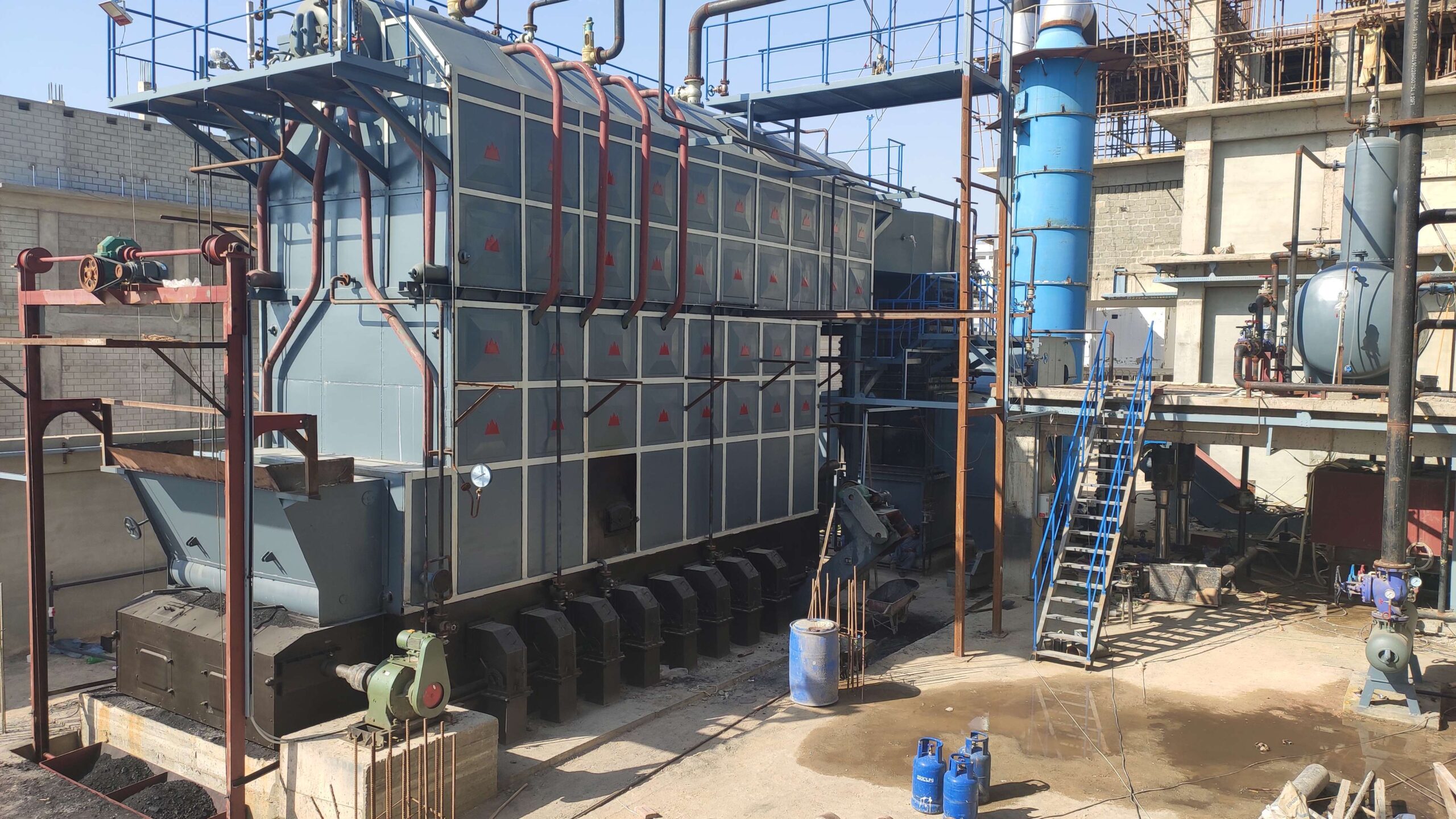
What Industries Benefit Most from Turnkey Boiler System Execution?
For many industries, a reliable and efficient boiler system is the backbone of daily operations. From generating process steam to powering turbines and sterilizing equipment, boilers are essential—but so are the complexities of installing them. For high-stakes sectors where downtime is costly and precision matters, a turnkey boiler system offers the best solution. It delivers the engineering, equipment, installation, and commissioning under one contract, ensuring speed, safety, and seamless operation.
Industries that benefit most from turnkey boiler system execution include food and beverage, chemical processing, pharmaceuticals, textiles, pulp and paper, manufacturing, oil and gas, and healthcare. These sectors value turnkey execution because it minimizes downtime, ensures regulatory compliance, and delivers integrated systems ready for immediate production use.
These industries demand both process reliability and tight project control, making turnkey delivery the smart choice.
Turnkey boiler systems are especially valuable in industries where uptime, compliance, and integration are critical.True
Turnkey projects reduce coordination risk and deliver ready-to-run boiler systems that meet industry-specific standards and schedules.
Top Industries That Benefit from Turnkey Boiler Systems
| Industry | Why Turnkey Execution Matters |
|---|---|
| Food & Beverage | Steam used for cooking, sterilization, and CIP systems—needs fast, clean setup |
| Chemical Processing | High-pressure boilers with strict controls—turnkey reduces safety and code risks |
| Pharmaceutical | Requires GMP-compliant steam systems and precise installation |
| Textile & Dyeing | Steam is crucial for drying, dyeing, and finishing—downtime causes huge losses |
| Pulp & Paper | Large, high-output boilers with complex fuel systems—needs integrated approach |
| Manufacturing (General) | Turnkey delivers consistent heating or power supply across shifts |
| Oil & Gas / Petrochemical | Demands highly engineered systems and explosion-proof controls |
| Hospitals & Healthcare | Requires steam for sterilization and heating—must meet hygiene and safety codes |
| Brewery & Distillery | Steam for mashing, brewing, bottling—needs compact, reliable boiler rooms |
| Power Plants (small-scale) | Steam turbines need precision-tuned boilers and rapid start-up capacity |
Why These Industries Prefer Turnkey Solutions
| Advantage | Impact for the Industry |
|---|---|
| Fast Commissioning | Reduces downtime in 24/7 operations like food, pharma, and textiles |
| Regulatory Compliance | Meets ASME, PED, CE, or GMP standards without multi-party confusion |
| One Contract, One Team | Ideal for sectors with limited in-house engineering staff |
| Tailored System Integration | Boiler control synced with existing PLC, SCADA, or MES systems |
| Predictable Budget | Critical in industries with strict project ROI requirements |
Case Example: Turnkey Boiler for Dairy Factory
Industry: Dairy
Requirement: Clean steam for pasteurization, CIP, and bottling line
Scope: Turnkey project with boiler, water treatment, stainless piping, and automation
Result: Installed and commissioned in 60 days, met food safety and energy audit compliance
Other Sectors with Growing Turnkey Demand
Data centers (for heat recovery or backup power applications)
Agriculture & greenhouse operations (for thermal control)
Mining operations (remote modular boiler systems for camps and processing units)
Tip: If your industry requires fast system integration, strict compliance, or coordinated utilities, turnkey is the smartest choice for thermal systems.
Final Word
Turnkey boiler execution delivers maximum value in industries that can’t afford delays, disjointed systems, or safety oversights. It ensures you get a fully engineered, fully operational boiler—on time, on budget, and on spec.
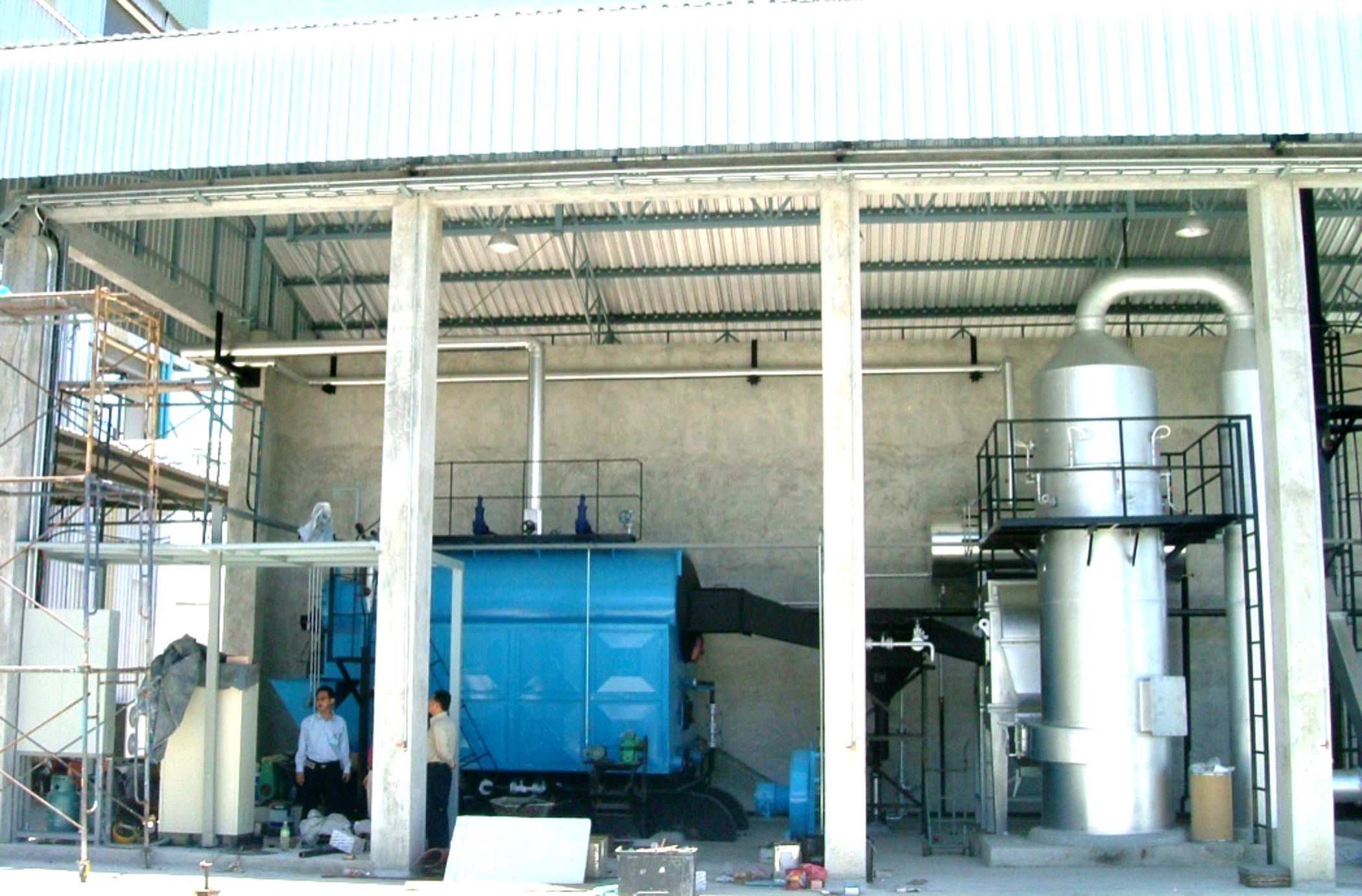
How Do You Ensure Compliance with Local Codes, Safety Standards, and Emissions Regulations?
Installing and operating an industrial boiler is not just a matter of functionality—it’s a legal and environmental obligation. Whether it’s pressure vessel codes, workplace safety laws, or air pollution limits, failing to comply can result in shutdowns, fines, or denied operating permits. For global or local projects, these rules vary by region and application. That’s why professional boiler suppliers and EPC contractors build compliance into every phase of the project.
Compliance with local codes, safety standards, and emissions regulations is ensured through certified boiler designs (ASME, CE, PED), site-specific engineering, third-party inspections, emissions control systems, factory acceptance tests (FAT), and full documentation that meets national and international legal requirements.
Turnkey suppliers coordinate directly with regulatory bodies, so your boiler is approved and ready for legal operation.
Industrial boiler compliance involves certified design, documented testing, and alignment with local laws.True
To legally install and run a boiler, suppliers must meet design codes like ASME or PED, pass safety and emissions checks, and provide documentation for government approval.
Core Methods Used to Ensure Boiler Code and Regulation Compliance
| Compliance Area | How It’s Ensured |
|---|---|
| Pressure Vessel Codes | Boilers are certified under ASME (USA), CE/PED (EU), IBR (India), or local authority |
| Safety Standards | Includes safety valves, flame safeguards, water level controls, and emergency shutdowns |
| Local Installation Codes | Design adapts to regional codes (e.g., seismic zones, fire codes, electrical standards) |
| Emissions Regulations | NOx, CO₂, SO₂ limits met using low-NOx burners, flue gas treatment, or scrubbers |
| Control & Monitoring | PLC/DCS systems include alarms, trip logic, and compliance data logging |
| Environmental Permits | Assistance with permit documentation, stack testing, and operational certifications |
| Third-Party Inspections | TÜV, SGS, or local authority verify welding, thickness, performance, and safety |
| Operator Training | Staff trained on legal SOPs, emergency procedures, and record-keeping |
| Documentation Package | Includes compliance certificates, FAT reports, ITPs, as-built drawings, O&M manuals |
International Standards Commonly Used in Industrial Boiler Projects
| Standard/Code | Region or Use |
|---|---|
| ASME Section I | USA and internationally for steam boilers |
| CE / PED 2014/68/EU | European Union pressure equipment compliance |
| IBR Certification | India-specific boiler regulation |
| ISO 14001 | Environmental management standard (global) |
| NFPA 85 | Combustion safety standard for larger systems |
| UL / CSA / IEC | Electrical components and control panels |
Emissions Control Methods for Regulatory Compliance
| Emission Type | Typical Control Technology |
|---|---|
| NOx (Nitrogen Oxides) | Low-NOx burners, staged combustion, flue gas recirculation |
| SOx (Sulfur Oxides) | Fuel switching (low sulfur), scrubbers |
| Particulate Matter | Bag filters, cyclones, electrostatic precipitators (ESP) |
| CO / CO₂ | Complete combustion design, oxygen trim systems |
Example: Ensuring Compliance in a 10-Ton Steam Boiler Project
Location: Middle East
Boiler Type: Natural gas-fired, 10 ton/h
Compliance Scope:
– PED certification with CE Marking
– Factory Acceptance Test witnessed by local inspector
– On-site stack testing to verify NOx < 30 ppm
– Emissions logbook integrated into DCS system
– Environmental permit approved with turnkey documentation
Pro Tips for Buyers
Request compliance certificates before shipment (ASME U-Stamp, CE PED Module B/D)
Ensure local agent involvement for permits and inspections
Include emissions design limits in your boiler specifications
Choose suppliers with proven international experience in regulated markets
Document training and commissioning steps to retain legal records
Final Word
In today’s regulatory landscape, compliance is not optional—it’s mission-critical. A qualified boiler supplier doesn’t just sell equipment—they ensure that every weld, valve, and emission reading meets legal standards.
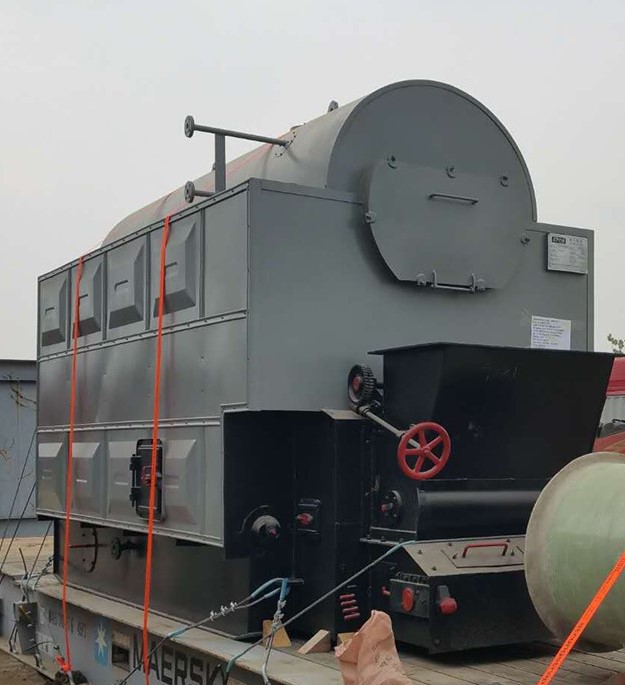
What After-Sales Services and Long-Term Support Are Included in EPC Boiler Projects?
Completing an industrial boiler EPC project is not the end of the journey—it’s the beginning of long-term operational success. Once the system is installed and commissioned, ongoing performance, safety, and reliability depend heavily on the after-sales service and technical support that follows. Without proper maintenance assistance, operator training, spare parts availability, or diagnostic support, even a perfectly built system can suffer downtime or early failure. That’s why professional EPC boiler contractors include robust after-sales and lifecycle support in every project package.
After-sales services and long-term support in EPC boiler projects typically include warranty coverage, preventive maintenance plans, spare parts supply, remote technical support, periodic inspections, operator training refreshers, efficiency audits, and access to system upgrades or retrofits.
These services ensure the boiler continues running safely, efficiently, and within compliance standards for years after installation.
EPC boiler projects include post-installation services like maintenance, training, and spare parts supply.True
After-sales support is critical to maximizing boiler life and ensuring sustained system performance, especially in high-demand industrial applications.
Core After-Sales Services in EPC Boiler Projects
| Service Type | What’s Included |
|---|---|
| Warranty Support | Coverage for defects in pressure parts, burners, valves, and controls (typically 12–24 months) |
| Preventive Maintenance | Scheduled inspections, cleaning, safety checks, recalibration, and wear part replacements |
| Spare Parts Supply | OEM spare kits, inventory planning, priority shipping for emergency components |
| Remote Technical Support | Troubleshooting via phone, email, or remote diagnostics systems (if applicable) |
| On-Site Support | Field technician visits for complex repairs, annual audits, or system rebalancing |
| Training Refreshers | Follow-up operator workshops, safety drills, or SOP updates |
| Performance Optimization | Steam output tuning, combustion efficiency checks, emissions control assessment |
| Software/PLC Updates | Periodic updates to automation system for functionality or compliance |
Typical Warranty and Support Timeline (Example)
| Phase | Support Provided |
|---|---|
| Commissioning + 1–3 months | Fine-tuning, bug fixes, 24/7 support hotline |
| First 6–12 months | Warranty inspections, parts coverage, remote checks |
| 12–24 months | Optional service contracts begin; upgrade offers available |
| Annually thereafter | Scheduled maintenance visits, efficiency audits, training sessions |
Extended Support Packages Available
| Support Plan | Ideal For | Includes |
|---|---|---|
| Standard O&M Plan | Medium-sized users with in-house technicians | Annual visits, spare parts access, 5–day tech response |
| Premium 24/7 Plan | Mission-critical facilities | 24-hour response, guaranteed spare kits, remote monitoring |
| Lifecycle Upgrade Plan | Long-term installations (5–10 years) | Controls modernization, burner retrofits, thermal performance improvements |
Real-World Scenario: EPC Boiler After-Sales Success
Client: Textile manufacturer, Southeast Asia
System: 8-ton coal-to-gas converted boiler
Support Scope:
– 24-month warranty on pressure parts
– Quarterly on-site inspections and flame tuning
– Cloud-based combustion monitoring with alerts
– Annual training session for new operator team
Result: 98.5% annual uptime with zero unplanned shutdowns
Why After-Sales Support Matters
Extends equipment lifespan
Protects warranty validity
Prevents unexpected downtime
Improves fuel and thermal efficiency
Keeps your system within emissions and safety compliance
Tip: Always confirm what’s included in your EPC contract’s support terms—request a detailed post-installation support calendar and point of contact list.
Final Word
A truly successful EPC boiler project isn’t just about installation—it’s about sustained performance for years to come. With expert after-sales service, proactive maintenance, and reliable spare parts access, your investment keeps paying dividends.
🔍 Conclusion
Our turnkey and EPC services for industrial boiler projects provide a fully integrated, risk-controlled path to operational readiness. With a focus on engineering excellence, compliance, and lifetime support, we help clients maximize project success while minimizing effort and risk.
📞 Contact Us
💡 Looking for an expert EPC contractor for your industrial boiler project? We offer end-to-end project delivery, customized designs, fast-track installation, and long-term technical support.
🔹 Partner with us for efficient, worry-free execution of your industrial boiler system—from design to commissioning. 🏗️🔥📊✅
FAQ
Do you provide turnkey solutions for industrial boiler projects?
Yes. Many boiler manufacturers and engineering firms offer turnkey solutions, handling the entire project from design to commissioning. A turnkey service typically includes:
Boiler system design and engineering
Procurement of equipment and materials
Civil and mechanical installation
Instrumentation and control systems
Commissioning, testing, and operator training
This approach is ideal for clients seeking a single point of responsibility, reduced project risks, and faster delivery timelines.
What is included in a typical EPC (Engineering, Procurement, Construction) contract?
An EPC contract for an industrial boiler project covers:
Engineering: Detailed process and mechanical design, 3D modeling, and layout planning
Procurement: Sourcing of boilers, piping, valves, electrical panels, and auxiliary systems
Construction: On-site installation, welding, electrical, and insulation work
Commissioning: Testing, certification, and system handover
Documentation & Training: Manuals, compliance reports, and operator instruction
EPC services ensure turnkey delivery with performance guarantees and accountability.
What are the advantages of choosing a turnkey or EPC boiler solution?
Key benefits include:
Single point of contact for project execution
Faster project delivery and mobilization
Reduced risk of cost overruns and delays
Greater quality control and regulatory compliance
Access to custom engineering and system integration
Turnkey solutions are especially beneficial for complex or large-scale boiler systems in industrial plants.
What industries typically require EPC boiler services?
EPC and turnkey boiler projects are common in:
Power generation and cogeneration (CHP) plants
Oil & gas refineries
Chemical and petrochemical facilities
Paper, textile, and food processing industries
District heating systems and large utilities
These sectors often demand bespoke system integration, automation, and long-term reliability.
Can you handle international turnkey boiler projects?
Yes. Many EPC providers operate globally and offer:
Multinational engineering expertise
Compliance with international standards (ASME, ISO, CE, etc.)
Port-to-site logistics and customs handling
On-site installation teams and local partner networks
Post-commissioning support and service contracts
International EPC execution requires strong project management, documentation, and cross-border coordination.
References
Thermodyne Boilers – Turnkey Boiler Projects – https://www.thermodyneboilers.com
Cleaver-Brooks – EPC and System Integration – https://www.cleaverbrooks.com
Hurst Boiler – Custom Boiler Turnkey Solutions – https://www.hurstboiler.com
Powerhouse – Boiler Project Management Services – https://www.powerhouse.com
Spirax Sarco – Engineering Projects and Integration – https://www.spiraxsarco.com
Indeck – Industrial Boiler EPC Capabilities – https://www.indeck.com
Miura Boilers – Global Turnkey Boiler Solutions – https://www.miuraboiler.com
IEA – Project Delivery Models in Industrial Energy Systems – https://www.iea.org
BioEnergy Consult – EPC Services in Biomass Boiler Projects – https://www.bioenergyconsult.com
DNV – Engineering Standards for Boiler EPC Projects – https://www.dnv.com

